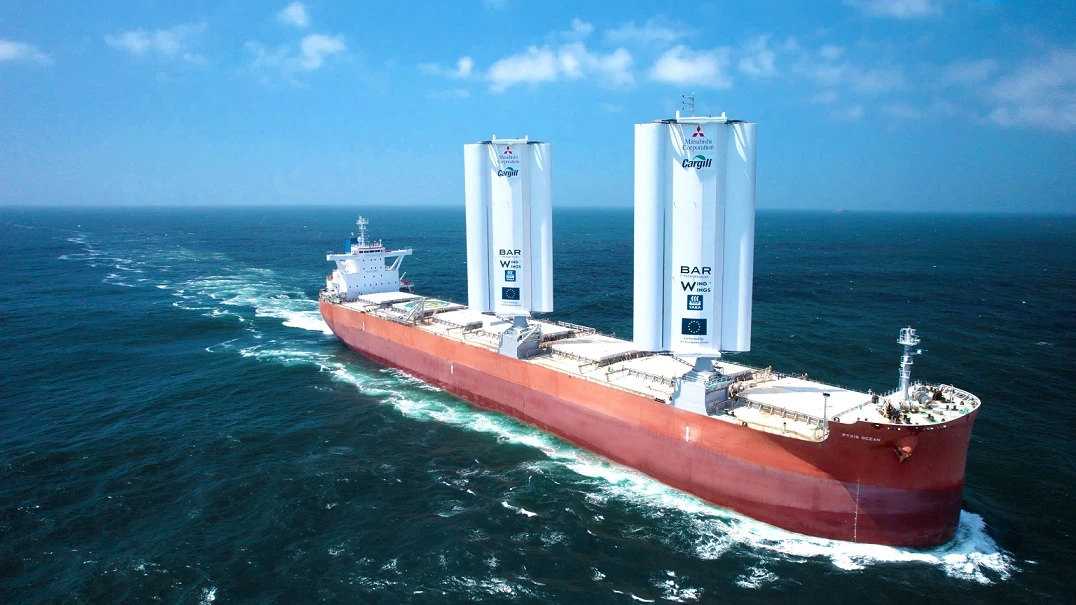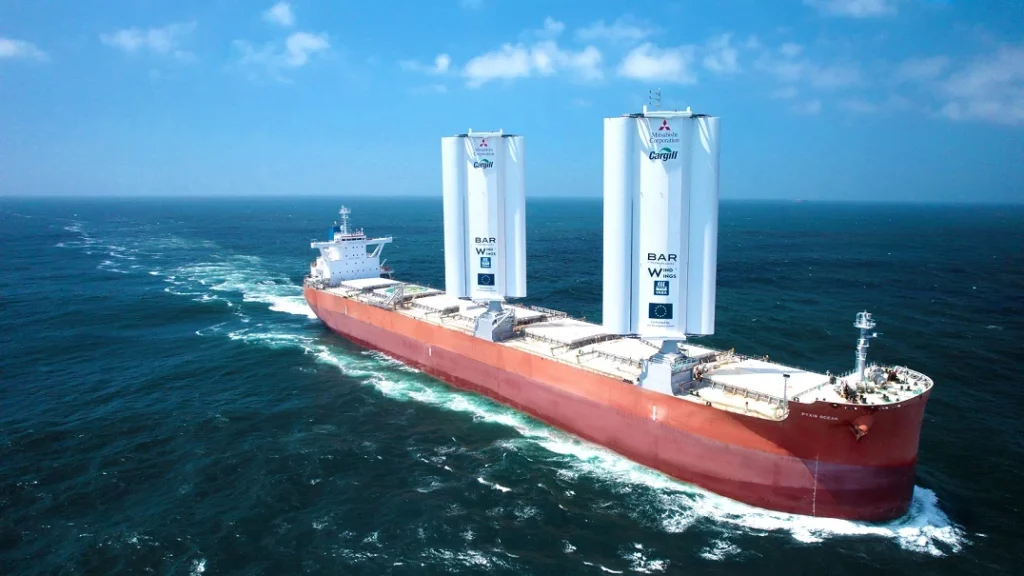
Cargill is ushering in a new era of sustainable shipping, placing innovation and collaboration at the heart of its mission to move goods responsibly across the globe. Through groundbreaking wind-assisted propulsion technologies, dual-fuel methanol-powered vessels, and cutting-edge digital solutions, Cargill is setting a benchmark for the maritime industry. The company’s initiatives align with the International Maritime Organization’s (IMO) ambitious 2050 net-zero target, demonstrating a blend of technical expertise and a commitment to industry-wide partnerships. By adopting these strategies, Cargill is not only future-proofing the maritime sector but also empowering its customers to meet their sustainability objectives.
A Bold Vision for Decarbonizing Shipping
“Decarbonizing shipping is a monumental task that requires courage, innovation, and collaboration,” said Jan Dieleman, president of Cargill’s Ocean Transportation business. “Our role extends beyond providing freight-shipping services; we aim to catalyze a shift across the industry toward sustainable practices. Through strategic investments in state-of-the-art technology and robust partnerships, we are accelerating the journey to net-zero emissions in shipping.

Cargill’s approach reflects a deep understanding of the challenges and opportunities inherent in maritime decarbonization. By integrating advanced technologies and fostering collaboration, the company is paving the way for a more sustainable shipping industry.
Leading the Charge with Wind-Assisted Propulsion
One of Cargill’s most notable innovations is its leadership in wind-assisted propulsion technologies. The Pyxis Ocean, the first dry bulk vessel equipped with BAR Technologies’ WindWings®, completed its maiden voyage in 2023. WindWings are large, rigid sails designed to harness wind power, significantly reducing fuel consumption and emissions.
Expanding on this success, Cargill has introduced additional wind-assisted technologies, including VentoFoil vertical suction sails on the NBA Magritte and rotor sails on the TR Lady. These technologies are part of an experimental program aimed at optimizing technical, operational, and commercial aspects before scaling up. By leveraging wind power, these innovations align with the IMO’s target to derive 5-10% of maritime energy from renewable sources by 2030.
Dieleman emphasizes the importance of wind as a long-term contributor to decarbonization goals. While zero-carbon fuels may remain costly in the foreseeable future, advancing wind-assisted propulsion technologies can reduce reliance on traditional fuels and bridge the gap toward a greener future.
Transforming Fuels: Biofuels and Methanol-Powered Vessels
Cargill is also pioneering the use of alternative fuels to minimize its carbon footprint. Biofuels, such as fatty acid methyl esters (FAME), represent a significant step forward. These renewable fuels can be used as drop-in solutions, requiring minimal modifications to existing engines. In 2023, Cargill moved from trialing biofuels to scaling their use, lifting nearly 172,000 metric tons of biofuel blends containing 63,000 metric tons of FAME.
Another transformative initiative is the adoption of methanol-powered vessels. Cargill has become the first dry-bulk charterer to sign commercial agreements for dual-fuel methanol-powered ships, which are expected to become operational within the next two years. Methanol, a low-carbon alternative fuel, offers a scalable pathway to zero emissions and underscores Cargill’s proactive approach to sustainable shipping. These vessels, the first of their kind in commercial service, demonstrate Cargill’s commitment to supporting Scope 3 emissions reduction goals for itself and its customers.
Digital Innovation for Enhanced Efficiency
Digital solutions play a pivotal role in Cargill’s decarbonization strategy. The company utilizes advanced voyage optimization tools to create digital twins of its vessels. These virtual models enable precise planning of speed and routes, minimizing fuel consumption and emissions.
Cargill has partnered with ZeroNorth to enhance its digital capabilities further. By leveraging data-driven technologies, the company is improving operational efficiency and advancing sustainability, reinforcing its dedication to achieving net-zero emissions.
Collaboration as the Cornerstone of Progress
Cargill recognizes that meaningful decarbonization requires a collective effort across the maritime sector. The company is an active member of various industry initiatives aimed at reducing shipping’s climate impact. As a founding member of the Maersk Mc-Kinney Moller Center for Zero Carbon Shipping, Cargill collaborates with industry leaders to test and promote alternative fuels like ammonia and methanol.
Additionally, Cargill is a key participant in the Sea Cargo Charter, a coalition focused on transparency and shared decarbonization frameworks. These partnerships underscore Cargill’s belief that industry-wide collaboration is essential to driving significant progress.
A Vision for the Future
“As we continue this journey, we’re focused on solutions that don’t just improve our own operations but drive change across the industry,” said Dieleman. “Our vision is a shipping sector that delivers the goods the world needs while protecting our planet’s future. We’re proud to be part of this transformation and are committed to building a more sustainable future for global shipping.”
Cargill’s multifaceted approach to sustainable shipping—spanning wind-assisted propulsion, alternative fuels, and digital innovation—demonstrates its leadership in the maritime industry. By combining technological advancements with strategic partnerships, the company is creating a blueprint for a sustainable shipping future. As the world moves toward decarbonization, Cargill’s efforts stand as a testament to the power of innovation and collaboration in achieving global sustainability goals.

